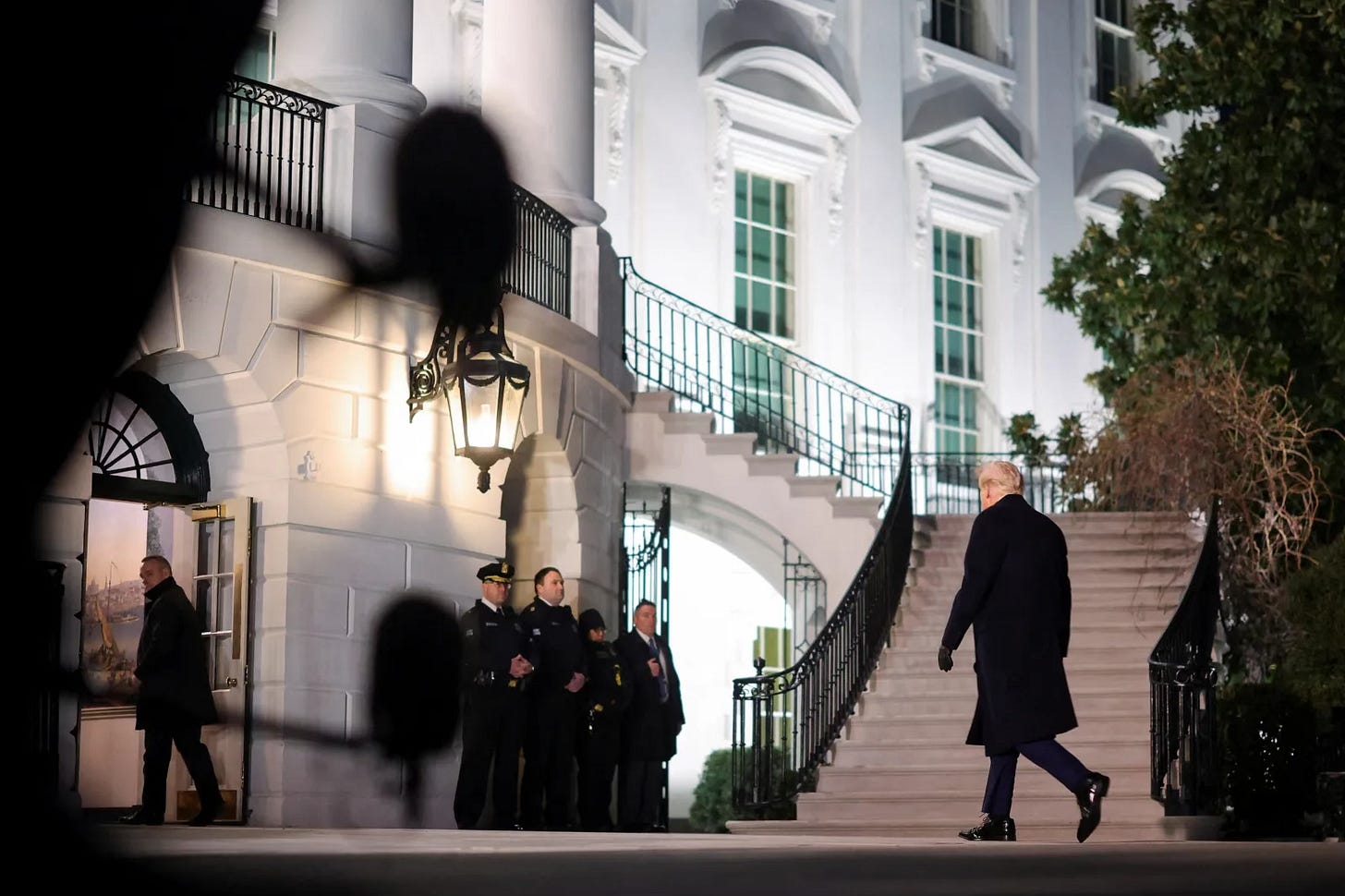The Price of Trump’s Power Politics
Why China and Russia Stand to Win in a Might-Makes-Right World
What comes after Pax Americana? That is the question Jim Lindsay and I addressed in a new piece in Foreign Affairs.
Pax Americana is gone. Born with the Japanese attack on Pearl Harbor on December 7, 1941, the U.S.-led international rules-based order died with the second inauguration of Donald J. Trump. The president has long maintained that this order disadvantages the United States by saddling it with the burden of policing the globe and enabling its allies to play it for a sucker. “The postwar global order is not just obsolete,” Secretary of State Marco Rubio declared in his Senate confirmation hearing. “It is now a weapon being used against us.”
Trump’s skepticism about U.S. support for Ukraine and Taiwan, his eagerness to impose tariffs, and his threats to retake the Panama Canal, absorb Canada, and acquire Greenland make it clear that he envisions a return to nineteenth-century power politics and spheres of interest, even if he does not frame his foreign policy in those terms. In that era, the great powers of the day sought to divide the world into regions that each would dominate, regardless of the desires of those who lived there—a vision of the world that Trump explicitly echoes. Trump sees few significant U.S. interests outside the Western Hemisphere, considers alliances to be a drain on the U.S. Treasury, and believes the United States should dominate its neighborhood. His is a Thucydidean worldview—one in which “the strong do what they can and the weak suffer what they must.”
Although the era of Pax Americana produced extraordinary achievements—the deterrence of communism, unprecedented global prosperity, relative peace—it also planted the seeds of its own destruction well before Trump’s ascent. American hubris had led to costly, humiliating wars in Afghanistan and Iraq, and the 2008–9 financial crisis shattered faith in the U.S. government’s competence and policy prescriptions. One can understand why some Americans might feel their country would fare better in a different, might-makes-right world. The United Stateswould seem to bring a strong hand to such an order—it commands the world’s largest economy, its most capable military, and arguably its strongest geographic position.
But it has a profoundly underrated disadvantage: lack of practice. Naked power politics is alien terrain for the United States, but it is familiar territory to its current rivals. Chinese President Xi Jinping and Russian President Vladimir Putin have long resented Pax Americana because it limited their geopolitical ambitions. They have learned to work together to counter U.S. influence, especially in the global South. And unlike Trump, they do not face internal checks and balances on their power. They could overplay their hands and generate a backlash to their revisionist ambitions. But if they do not, Trump’s gamble could easily go awry, leaving Americans, and the rest of the world, less prosperous and less secure.
I encourage you to read the entire piece. Gift link.






